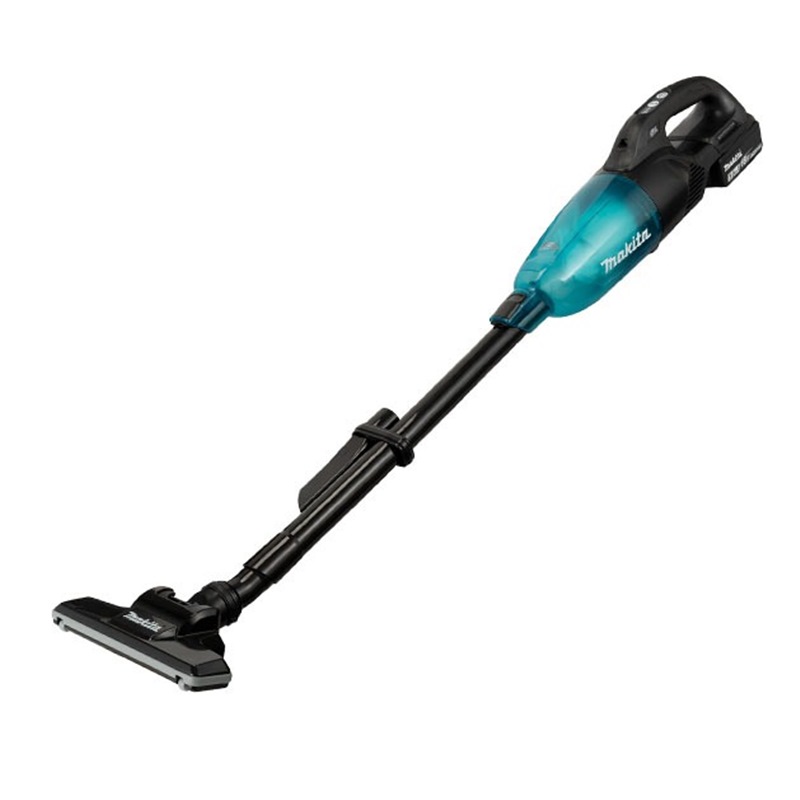Assessing Your Vacuum Cleaner’s Condition
Where to dispose vacuum cleaner? Before deciding where to dispose of your vacuum cleaner, assess its condition. Is it still working? Does it only need minor repairs? Understanding the state of your appliance is crucial for the next steps.

- Fully Functional: If your vacuum cleaner is in good working order, consider donation or resale. Many organizations and individuals could benefit from a second-hand cleaner in good condition.
- Minor Issues: For a machine with small problems, repairs might be a feasible option. Sometimes a simple fix can extend its life, preventing waste.
- Major Malfunctions: When your cleaner has serious issues, recycling could be the best choice. Look for local recycling programs that accept electronic appliances.
- Beyond Repair: If the vacuum cleaner is beyond repair, disposal may be the only route. Check local waste management protocols to ensure you dispose of it properly.
Remember to keep an eye out for retailer take-back programs, as some companies offer trade-ins or recycling for old models. By accurately assessing your vacuum cleaner’s condition, you can choose the most responsible and convenient method to dispose of it.
Local Waste Management Regulations and Vacuum Cleaner Disposal
When considering where to dispose of your vacuum cleaner, local regulations play a pivotal role. These rules ensure safe disposal practices and protect the environment. Local waste management regulations vary by region, but here are some common points to consider:
- Check Local Guidelines: Start by checking your city or municipality’s waste disposal instructions. They provide the specific days and locations for electronic waste collection.
- Hazardous Waste Rules: Vacuum cleaners may contain elements considered hazardous. Your local waste management will have rules on how to handle such items.
- Special Disposal Events: Some areas organize e-waste recycling events. These events offer residents a chance to rid of electronic items in an eco-friendly manner.
- Curbside Pickup: Certain places have curbside pickup for electronics. Find out if your area offers this service and the pick-up schedule.
- Proper Segregation: Make sure to segregate your vacuum cleaner from regular trash. This prevents contamination and facilitates proper disposal.
By following your local guidelines, you ensure that the disposal of your vacuum cleaner aligns with environmental protection efforts. It also helps maintain the cleanliness of the community. Always check with your local waste management authority to get the most up-to-date information.

Recycling Options for Vacuum Cleaners
Recycling is a responsible way to dispose of a broken vacuum cleaner. Many parts of a vacuum cleaner can be recycled, including its metal, plastic components, and sometimes even the motor. To find out where to dispose of your vacuum cleaner through recycling, here are some steps to follow:
- Locate a Recycling Facility: Search online or call your local waste management to find a facility that accepts vacuums.
- Prepare the Vacuum: Clean and remove any non-recyclable parts such as bags or filters.
- Drop Off: Take the vacuum cleaner to the designated recycling center. Some facilities may offer pick-up services.
- Recycling Fees: Be aware some centers may charge a fee for electronic waste processing.
- Certificate of Recycling: Ask for a certificate to confirm your vacuum has been responsibly recycled.
Keep in mind that properly recycling vacuum cleaners helps to reduce landfill waste and recover valuable materials. Always choose a certified recycling facility to ensure that it follows environmental and safety standards.
Donation and Reuse Opportunities
Even if your vacuum cleaner isn’t a fit for your home anymore, it may still serve a purpose elsewhere. Donation and reuse extend the life of your appliance and can provide support to those in need. When thinking about where to dispose vacuum cleaner through donation or reuse, keep these options in mind:
- Charitable Organizations: Many nonprofits welcome working appliances. Reach out to local shelters, thrift stores, or community groups.
- Online Marketplaces: List your vacuum cleaner on platforms like Craigslist or Facebook Marketplace for free or at a low cost.
- Garage Sales: Include your vacuum cleaner at your next garage sale. It might catch the eye of a thrifty shopper.
- Freecycling: Join a local Freecycle group and offer your vacuum to neighbors. It’s a green and social way to find your appliance a new home.
- Schools and Theaters: These institutions often need props or cleaning equipment. Offer your vacuum cleaner to a local school drama department or a community theater.
Don’t forget the powerful impact of donation. By giving away your vacuum cleaner, you not only avoid waste but also contribute positively to your community. Always test and clean the vacuum cleaner before passing it on to ensure it’s safe and convenient for the next user.
Repair and Upcycling Possibilities
Before you decide where to dispose of your vacuum cleaner, remember that repair and upcycling are viable options. Not only do they save you money, but they also benefit the environment. Here are some ways to breathe new life into your old vacuum:
- Self-repair: If you’re handy, consider fixing the vacuum yourself. Many guides and tutorials online can help with common issues.
- Professional Help: Sometimes a professional can fix a vacuum at a lower cost than buying a new one. Check local repair shops for their rates.
- Upcycling Projects: Get creative and repurpose your vacuum’s parts for something new. The motor could turn into a science project, or the hose might become a garden tool.
- Replacement Parts: If a specific part has broken, replacing it may fix the problem. Many manufacturers and retailers sell spare parts.
Always weigh the repair costs against the value it brings. If it’s cheaper to repair than replace, fixing is the way to go. Consider upcycling if your vacuum cleaner is beyond repair. This unique form of recycling can transform your old appliance into something useful again. With these steps, where to dispose vacuum cleaner becomes a choice that may lead to innovation and sustainability.

Retailer Take-back Programs
Retailer take-back programs offer a convenient way to dispose of old vacuum cleaners responsibly. These programs are typically run by manufacturers or retailers. They encourage customers to return their used appliances for recycling or refurbishment. Here’s how they work and why they are beneficial:
- Manufacturer Initiatives: Some vacuum cleaner brands have their own take-back schemes. They accept old models of their products for recycling or proper disposal.
- Retail Cooperation: Certain stores partner with recycling programs. They act as drop-off points for unwanted vacuum cleaners.
- Trade-in Deals: Often, these programs incentivize customers with discounts. You may get a reduction on a new purchase when you return your old machine.
- Convenience: These programs make it easy for customers. You can bring your old vacuum to the store where you bought it or to a participating retailer.
- Environmentally Friendly: Retailer take-back programs ensure that vacuums are disposed of in an eco-conscious way. They reduce the risk of harmful waste entering the environment.
- Potential Refurbishment: Some returned vacuums are in good condition and can be refurbished. They are then sold as second-hand or donated to charity.
When considering where to dispose vacuum cleaner, look into take-back programs. Check with the store where you purchased your vacuum or with the manufacturer. They may have a scheme in place that is both convenient and good for the planet.
Environmental Impact of Improper Vacuum Cleaner Disposal
When you’re deciding where to dispose vacuum cleaner, considering the environmental impact is essential. Disposing of vacuum cleaners improperly can harm the ecosystem in several ways. Let’s explore the consequences.
- Hazardous Materials Release: Vacuums may contain toxic substances like lead or mercury. Incorrect disposal can lead to these pollutants leaking into the soil and waterways.
- Wildlife Threats: Small bits of plastic and metal can be mistakenly ingested by animals, leading to injury or death.
- Landfill Space: Electronic waste takes up valuable space in landfills and does not decompose easily, leading to overcrowding in waste facilities.
- Carbon Footprint: Producing new vacuum cleaners to replace improperly disposed ones uses more energy. This increases greenhouse gases in the atmosphere.
By being mindful of these impacts, you can make a greener choice for vacuum cleaner disposal. Always seek eco-friendly disposal methods to protect the planet.
Professional Vacuum Cleaner Disposal Services
When pondering where to dispose vacuum cleaner, professional disposal services can be an ideal choice. These services specialize in the proper handling of electronic waste, providing a hassle-free solution for consumers. Here’s why you might consider using such services:
- Expert Handling: Professionals are equipped to deal with electronic waste safely. They ensure vacuums are dismantled correctly, without harming the environment.
- Convenience: Professional services often offer pick-up options. You don’t need to transport the vacuum yourself.
- Compliance: Such services comply with all local and federal regulations on e-waste disposal, relieving you of legal concerns.
- Data Protection: If your vacuum has a digital interface, professionals can securely erase your data.
- Peace of Mind: Knowing your vacuum cleaner is disposed of responsibly provides mental ease. Experts take the guessing out of where to dispose vacuum cleaner.
Before selecting a professional disposal service, ensure they are certified and have a good track record. Inquire about any costs involved and what they do with the equipment post-collection. Choosing a reputable service contributes to a circular economy and lessens your environmental footprint.


